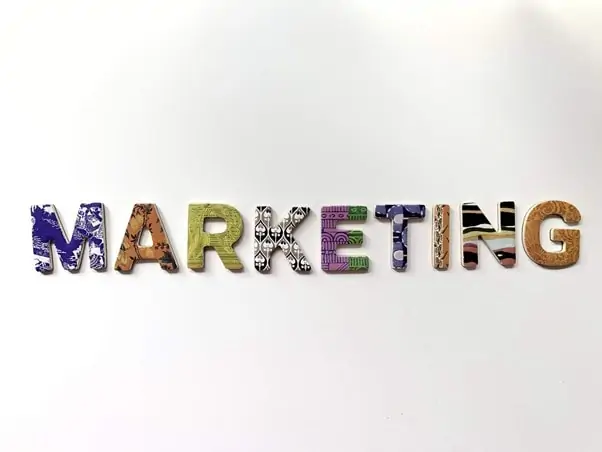Today it is easier for marketers to look a year ahead and make educated guesses about what the digital world will face. Many of the marketing technologies that drive business and drive strategies are on the rise, and some have already gained the popularity they deserve.
New Business Standards
By the end of 2020, the market comes with new norms of doing business, largely due to remote work.
In 2020, all companies had to become “little startups”. The office has ceased to be a competitive advantage – it has become speed, mobility and super-flexibility. The difference between young and mature players began to blur, and large agencies in terms of working conditions became equal to beginners.
Previously, a serious meeting could not be imagined online. Now even the selection of agencies for participation in the tender is carried out through Zoom. New challenges are emerging. How to feel the client’s chemistry and impress them through the screen? Offline presentation rules do not work here, which means you will need to come up with them.
In the new realities, industry platforms are no longer satisfied with the market. Agencies create their own awards, media and industrial projects.
Next year we expect even more industrial initiatives, new approaches to work and its assessment. This trend will intensify with the arrival of millennials in the top management of industry leaders.
Performance Marketing Development
We see a key trend in performance B2B marketing, that is, marketing and PR activities with a focus on predictable and financially measurable results. We assume that agencies will work more systematically with the client audience and try to communicate with it in a quality manner throughout the entire client journey. After all, online, you need to make a larger number of touches with a potential client before conversion to sale occurs. According to some of our peers in the market, this figure is 20 touches – compared to 6 offline touches.
Transparency and awareness will also characterize content marketing. During the pandemic, the information agenda has become as rich as possible. It is important for agencies to ensure targeted delivery of content to specific representatives of the target audience, and not “shoot sparrows with a gun.”
For example, to form an “information cocoon” around a potential client by delivering content to him directly through mailings, Telegram, setting up targeting in social networks. With this approach, the agency “saturates” the information field of a specific target audience with its content.
AI in B2B
The buzz around marketing technology comes and goes every month when a new tool appears or when a new area appears on the market. However, what will never lose its popularity is artificial intelligence.
AI is already widely used in modern marketing strategies such as chatbots, predictive analytics, and deep learning. You definitely need a professional engineering team for that which by the way could be easily hired on Engre.co. It is an international engineering platform that provides qualified services in software development, social engineering, and many other spheres.
One area to keep a close eye on is formative AI, which is cited as a trend in Gartner’s 2020 tech newswires.
“Formative AI is a type of AI that can dynamically change to respond to every situation,” writes Gartner. “There are many technologies, from the same artificial intelligence that can dynamically adapt to any situation, to technologies that can generate new models to solve specific problems.”
What role can formative AI play in marketing, and even more so that it can create a more personalized and memorable B2B marketing experience? Well, for now, we can only think about it and observe in which direction the vector of development will turn.
Building Ecosystems and Systems of “One window”
More and more companies are growing by combining products and services under their own brand in non-overlapping verticals. The potential for agency development also lies in meeting the maximum number of client needs through a “one-stop-shop”.
A striking example of this approach was demonstrated several years ago by the Publicis Group holding and its The Power of One approach. The holding decided to organize the main disciplines into four hubs each of which will be devoted to a particular sphere. And in spite of the fact that there are four “independable” marketing units they all have one common goal – to satisfy a customer. And the customer becomes a key player in all units.
But not all companies have enough resources to create their own ecosystem, such companies will unite and integrate partner services.
MindShare at the NextM conference from GroupM proposed the concept of developing an agency as a marketplace, where a client can choose any solution to his problem. And the partners of the agency will be able to deal with implementation.
Thus, agencies can strengthen their business in two ways: open new directions within the company or solve non-target tasks of clients with the help of partners. In this regard, the role of partner training programs is increasing.
Simplicity and Synchronicity
In their latest landscape visualization of marketing technology, Chief Martech has found nearly 8,000 different marketing automation solutions.
A large number of marketing decisions on this landscape map is due to the fact that now there are many technologies that can cover any conceivable and inconceivable business need. The downside, of course, is that the sheer volume and number of different, dissimilar options can be misleading for the marketer. The fine line between lack of marketing tools and oversupply is still felt.
In the near future, rationalization will turn into a game. What solutions can meet the multiple needs of the team? How to get continuous feedback from users? At the same time, they should communicate openly with each other, and the tool should not work for them, and all actions are performed quickly. Finding answers to these questions using marketing technology will help companies find more effective and efficient solutions in 2021. And moreover, looking for B2B marketing strategy tips for 2021 will make it easier to come up with modern ideas.
Digitalization
One of the main implications of 2020 for B2B marketers has been the shift to digital. Due to the pandemic, the drop in field marketing, sales, and face-to-face meetings has led to a massive shift towards virtual events and the search, consumption, and attraction of information online. B2B marketers have had to make significant changes to outdated practices. One of them is to organize work remotely. Anyway, there are several tips on how to promote remote work In your company as soon as possible. As a result, the signal has sounded that B2B marketing is going digital, and according to a study by Singular, 76% of CEOs believe the digital transformation in marketing technology is their most important direction in 2021.









0 Comments